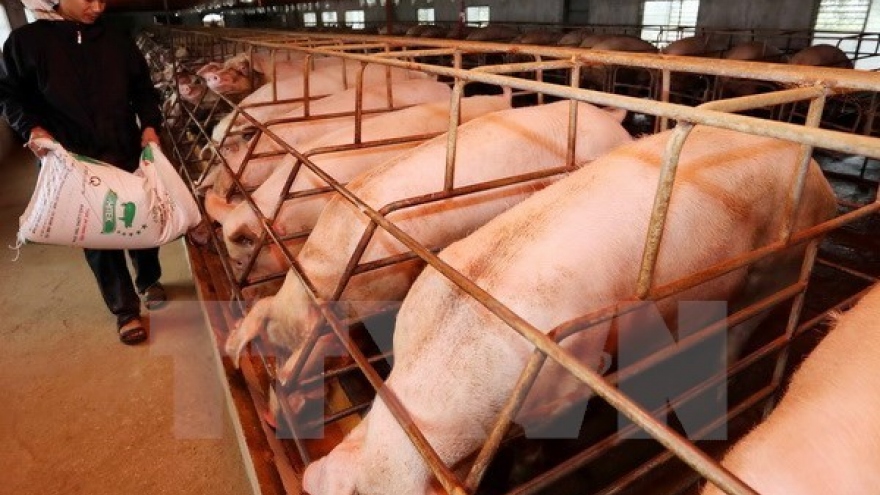Vietnam's export ratio of farm produce in decline
Vietnam’s total export turnover has been growing at an annual rate of 12.8% but outbound shipments of agricultural products have faced numerous difficulties and their annual export growth was recorded at a mere 2.4% in the 2012-2016 period.
The export ratio of agricultural products, as a result, had decreased from 13% in 2012 to 8.6% in 2016 in the country’s total merchandise export turnover, according to data of the General Department of Customs.
In particular, the export revenue of agricultural commodities reached over US$15 billion last year, up 7.7% against 2015, but increasing by a mere US$252 million compared to that of 2012.
 |
|
Customers are seen inspecting vegetables on sale. While the export of many agricultural products is inching down, outbound shipments of vegetables are on the rise |
These results are collected from data of outbound sales of vegetables, cashew nuts, coffee, tea, pepper, rice, rubber, cassava and cassava products.
The customs department said the export value of vegetables tripled at US$2.46 billion last year compared to 2012, and ranked third among the country’s exported farm produce.
Outbound sales of pepper and cashew nuts also achieved strong growth at an annual rate of over 14% in 2012-2016.
Meanwhile, export turnover from coffee, tea, rice and rubber remained low partly due to the falling commodity prices worldwide.
Coffee earned the highest export revenue last year, but experienced strong volatility in the five-year period.
Six out of eight major agricultural items, except for tea, cassava and cassava products, posted revenue of more than US$1 billion last year.
While export sales of coffee and pepper saw a year-on-year increase of over 30% in 2016, rice exports fell sharply in both volume and value.
Earlier, the Ministry of Agriculture and Rural Development said efforts by other countries to protect their farm produce will have an adverse effect on Vietnam’s agricultural revenue and production growth this year, as half of agricultural goods value depends on export.
Besides, these countries are heavily investing in the agricultural sector with the aim of ensuring their national food security and enhancing the competitiveness of their domestic agricultural products.
Therefore, these factors are posing multiple challenges for Vietnam to export agricultural commodities.



